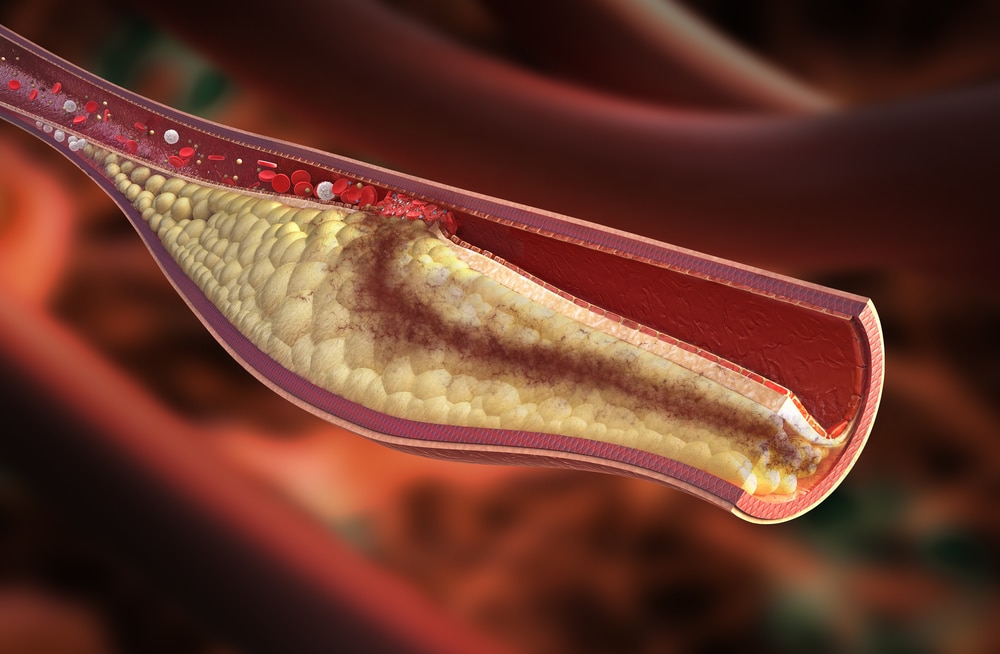According to a University of Arizona Health Sciences study, cholesterol could play a role in Alzheimer’s disease and Type 2 diabetes. Researchers identified a molecule they believe might prove valuable in regulating cholesterol levels in the brain, providing a potential therapy for Alzheimer’s disease. (1)
Cholesterol, Alzheimer’s Disease, And Diabetes
Type 2 diabetes results when a person’s insulin can’t remove glucose from the bloodstream efficiently. This leads to high blood sugar which in turn can cause abnormal cholesterol levels. With Alzheimer’s disease, rather than affecting the body as a whole like Type 2 diabetes, this same issue only affects the brain. (1)
“Alzheimer’s and diabetes share many common causes,” says Gregory Thatcher, PhD, professor of pharmacology and toxicology in the UArizona College of Pharmacy and R. Ken and Donna Coit Endowed Chair in Drug Discovery. “Our goal was to develop a way of identifying compounds that would counteract many detrimental changes that contribute to both Alzheimer’s and Type 2 diabetes.” (1)
Study Of Cholesterol, Alzheimer’s Disease, And Diabetes
According to the study, when cholesterol levels rise either from insulin resistance or other factors, reverse cholesterol transport begins. When this happens, specific molecules carry the excess cholesterol to be excreted by the liver. Of interest to the team was Apolipoprotein E (APOE) and its role in the process. It is not only the main risk factor gene for Alzheimer’s disease and related dementia, but also for Type 2 diabetes and cardiovascular disease. (1)
Another risk factor for these diseases is reduced activity of the ATP-binding cassette transporter A1 (ABCA1) which is also involved in the reverse cholesterol transport process. “While most people are aware of so-called ‘good cholesterol,’ and ‘bad cholesterol,’ associated with risk of heart attack and stroke, these broad concepts are also applicable to a healthy brain,” says Dr. Thatcher. “Moving cholesterol to where it is needed in the body has positive effects on many physiological processes and can help clear misfolded proteins that accumulate in the brain.” (1)
CL2-57: Cholesterol, Alzheimer’s Disease, And Diabetes
The study sought small molecules to help improve ABCA1 function to positively influence insulin signaling and reduce brain inflammation. “Metabolomic analysis of a selective ABCA1 inducer in an obesogenic challenge provides a rationale for therapeutic development,” noted the study. CL2-57 was identified as a molecule that can stimulate ABCA1 activity while having positive effects on liver and plasma triglycerides. The molecule showed improved glucose tolerance and insulin sensitivity, in hand with weight loss. (1)
Further research will explore ways to improve the molecule’s properties to increase the levels in the brain. The team hopes to pinpoint which patients with cognitive and neuropsychiatric symptoms of Alzheimer’s and dementia might benefit from the treatment. (1)
“During the Covid-19 pandemic we hear about the mounting deaths in nursing homes and it’s important to remember that Alzheimer’s and related dementia is a major cause of the elderly moving to nursing homes,” says Dr. Thatcher. “It would be good to think of a future in which healthspan was extended, especially a healthy brain; maybe that’s more important than lifespan.” (1)
Source:






